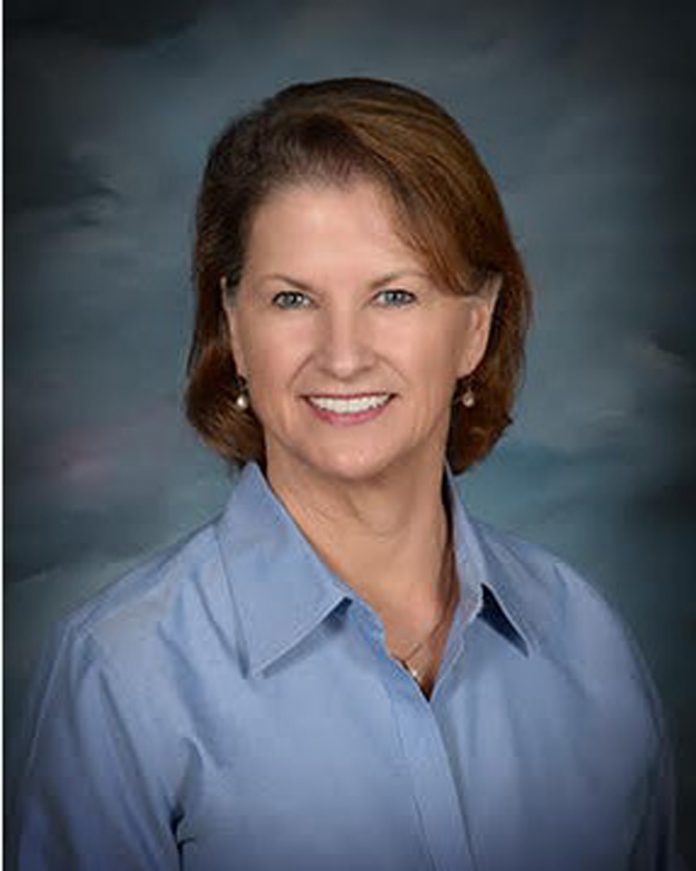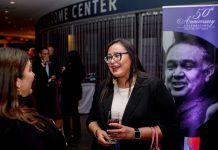Grossmont Union High School District Superintendent Theresa Kemper says she still feels like a teacher and carries the skills she initially learned in the classroom to every job.
For over 30 years, she has been on a trajectory in the district that began as an English and journalism teacher at El Cajon Valley high school. She served as a curriculum specialist at the district office and as Granite Hills High School Assistant Principal followed by Grossmont High School Principal before returning to the GUHSD district office as Assistant Superintendent in 2011.
Kemper was promoted to district superintendent during a July 9 school board meeting while students were on summer vacation and immediately began laying out plans for how to ease approximately 21,000 students back on campus with a modified return to school in the age of COVID-19.
“Starting last semester before summer, we established four guiding principles and I’m carrying them into the school year: Safety for students and staff; high quality education for all students; equity for all students; providing ongoing support for students and staff. Those principles are at the heart of the work,” Kemper said.
The new superintendent said a big part of supporting district goals —providing that safe and collaborative environment in an innovative learning environment that produces college and career-ready students— is keeping those values at the center of daily work.
“In my message to staff, I talk about supporting the work that needs to take place in a classroom between a student and teacher. Whether we work as bus drivers or as teachers, all of us are about supporting that work,” Kemper said.
The plan Kemper laid out for the 2020-21 school year reflects her background balancing curriculum as a classroom teacher. She describes a staggered return to campuses that includes five levels of in-person presence from full distance learning at level one to full in-person learning at level five.
“We’re following all the guidelines and we’re not looking at all or nothing. We’re looking to ease them back in… make sure we have all the routines in place before we gradually work our way back,” Kemper said. She explains the quarter system used to schedule students so they are only taking three classes at any time in the school year.
“I like the quarter system, students are taking fewer classes at a time so they’re worrying about three classes instead of six and they can go more in depth. For physical distancing, when students start easing back onto campus, the bell isn’t ringing every 55 minutes, they’re only moving three times so it really brings the activity down. Even if we hit level five we’ll be on the quarter system all year,” Kemper said.
She considers the possibility that any COVID-driven solutions might potentially drive future district practices.
“I’ve thought about that as we continue, there are some things like maybe we don’t all need to drive from all over the district to attend a meeting together. In some ways, they’re better because of an agenda with everyone listening. In the classroom, teachers and supporters have had to quickly learn what is or isn’t working. In a bigger picture, we’ve all been forced out of our comfort zone and that taps into our creative problems solving,” Kemper said.
She says this school year is going to feel very different now that students, teachers and parents have some experience with distance learning; some students, she says, took to it very well while others said they needed a teacher to prod them along and a reason to get out of bed’.
“We heard from students and parents that grades matter. They’re taking it very seriously, it’s hard in a distance learning environment to really keep track of how much students are checking in daily and we’re trying to find a way as a district to figure out how students are engaged,” Kemper said.
She also believes in reaching out to parents who do not speak English by following up standard emails with personal outreach for parents who simply can’t read the message; some schools require more interpretation and translation than other schools, she said.
Looking ahead to the future, Kemper looks past the forced changes temporarily brought on by COVID and talks about her excitement that the district is hitting its centennial birthday.














